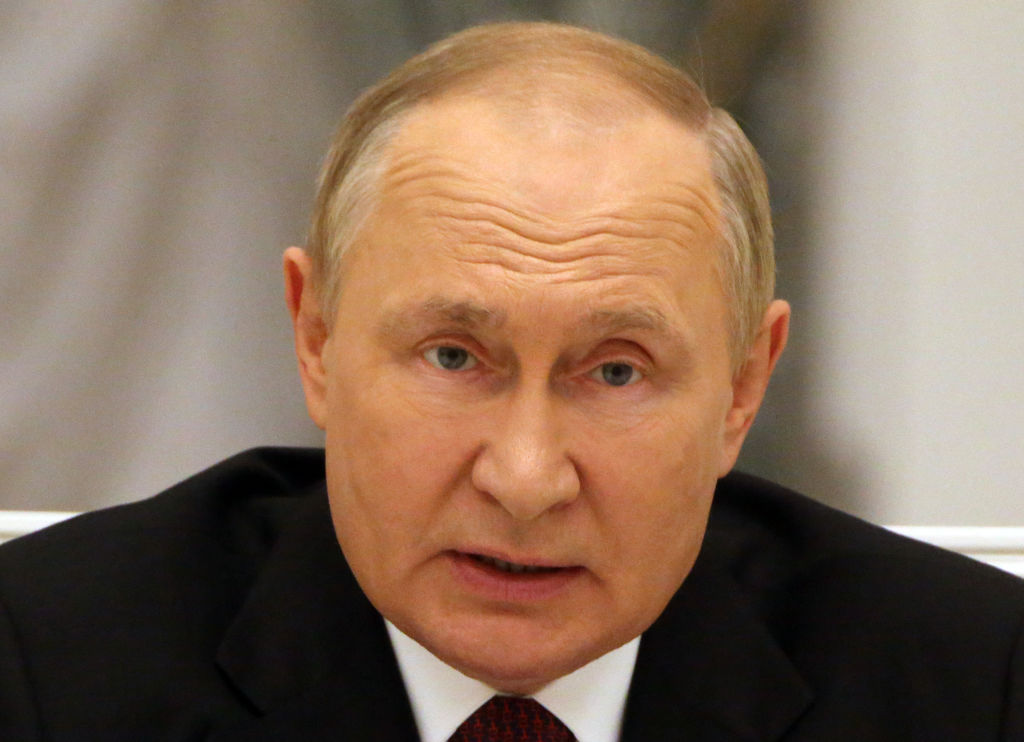Amid the growing collapse of Russian forces in Vladimir Putin’s ill-begotten war in Ukraine, a crucial question looms not just over the battlefield, but also over the future of Russia.
That question is not whether Putin will use nuclear weapons to reverse the tide of the war. That threat is certainly real, and the U.S. and NATO need to make it clear that any such use will bring massive retaliation from the West. But such an order might well be the last Putin ever gives. His inner circle is realizing that they have entered a dangerous end game with Putin in which they will have to choose who to sacrifice—him or themselves.
For that reason, the real question is what kind of Russia will emerge from this Ukraine war and from the Putin dictatorship. Twice during the 20th century, internal strife and military defeat triggered the collapse of Russia’s governing institutions and pushed the Russian bear into hibernation. Twice the U.S. and the West made the same mistake in response.The first occurred in 1917, when the democratic revolution that had toppled the czar was overthrown by Lenin and the Bolsheviks.The second was after the collapse of the Soviet Union, when the U.S. and the West were too busy celebrating the end of the Cold War to confront the failure of democracy in Russia until it was too late.
Both times the West interfered just enough to discredit democratic forces that turned to the West for support, but not enough to shape future events: In 1917 the West first backed Alexander Kerensky and the provisional government that replaced the czar, then the pro-czarist Whites in the ensuing civil war; in the 1990ss they backed the incompetent Boris Yeltsin. The result was that, after a period of internal turmoil and conflict, Russia returned to the geopolitical stage more dangerous and aggressive than ever—and seething with resentment toward the West.
This time, rather than dictate what kind of political settlement comes after Putin, our role should be to ensure that Russia emerges strong enough to protect its own vital interests against its real historical foe: China.
The Putin years have seen an increasingly weakened Russia become a virtual vassal state of Beijing, dependent on China to buy its oil and natural gas but also to supply the manufacturing and technology to keep the Russian economy alive. This has been a disaster for Russia’s interests but also for Europe and the rest of the world.
If Vladimir Putin is unable to confront this geopolitical truth, a post-Putin regime—whatever form it may take—will have to.
An enfeebled Russia has allowed China to expand its power into what has been traditionally Russia’s sphere of influence, namely central Asia. In the last decade China has expanded its considerable investments across the region—including the 1,833-kilometer-long gas pipeline that runs from the borders of Turkmenistan, via Uzbekistan and Kazakhstan—and has incorporated these Russian Federation states into its Belt and Road Initiative. In 2019 Beijing launched a series of exercises that increased interoperability between the People’s Armed Police and paramilitary units in those central Asian states. Moreover, China has historic claims to large swaths of Tajikistan, which it could decide to invoke in creating a new Chinese empire in central Asia.
In fact, Chinese President Xi Jinping’s September visit to central Asia was perfectly timed to take advantage of Moscow’s Ukraine debacle. During that visit one local leader after another pledged support for China’s territorial claim to Taiwan.
Then there’s Siberia. The 2,738-mile long Sino-Russian border was established in 1860, when Russia was a strong expanding power and China had fallen into virtual anarchy. Today, there are some 90 million Chinese along that border area, compared with barely 6 million Russians. Rich in natural resources, including fossil fuel energy, Siberians may well decide that their future looks brighter being closer to Beijing than Moscow. Russians and Chinese forces have clashed over border disputes before. If Beijing did decide to seize parts of Siberia by force, it’s hard to imagine a broken Russian army stopping them—short of using nuclear weapons.
As for the U.S., our job should be not trying to engineer regime change, but rather making sure Russians are aware that the growing dependence on China that Putin has intensified directly threatens their national interests. We can begin by building a strategy that can guide events to the best possible outcome: namely a Russia that’s strong enough to stay out of Beijing’s orbit and chart its own independent course—one that’s not necessarily aligned with the West, but one that’s not directly antagonistic.From the 13th to the 15th century, a weak and divided Russia suffered under what became known as the Mongol Yoke. Surely Russians don’t want to endure that fate again. The U.S.and the West can help them avoid its 21st century version.






Please note that we at The Dispatch hold ourselves, our work, and our commenters to a higher standard than other places on the internet. We welcome comments that foster genuine debate or discussion—including comments critical of us or our work—but responses that include ad hominem attacks on fellow Dispatch members or are intended to stoke fear and anger may be moderated.
With your membership, you only have the ability to comment on The Morning Dispatch articles. Consider upgrading to join the conversation everywhere.